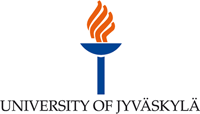About the Conference
- Is culture the fourth pillar of sustainability, alongside the ecological, economic and social aspects?
- How does culture act as a catalyst for ecological sustainability, human well-being and economic viability?
- What would our futures look like if sustainability was embedded in the multiple dimensions of culture, including different worldviews and values, ways of life, and other forms of cultural expression?
A cultural transition that embeds sustainability in the cultural understandings and daily practices of society has the power to shift humanity’s currently unsustainable trajectory. Culture already plays many roles in (un)sustainability but the scientific, policy-making and societal spheres lack understanding of the essence of culture and how it influences sustainability.
A landmark conference
This conference is both an ending and a beginning. It caps the work of the European research network COST Action Investigating Cultural Sustainability. But rather than closing the book on this international network, this inclusive conference aims to set directions for future research and actions. During the conference, scholars, policymakers, artists, planners and others will discuss the different roles and meanings of culture in sustainability. Representatives from different sectors and across disciplines will explore how culture(s) can support sustainable development and vice versa. The new ideas generated here about understanding culture(s) in sustainable futures will pave the way for integrating sustainability with cultural studies and practices.
Large and small group work, including a stage for scholarly and artistic expression, will feed this dialogue:
- Plenary sessions: lectures from invited speakers on culture, sustainability and development from the inter- and transdisciplinary perspectives
- Parallel research paper sessions: sessions to present and discuss research papers
- Parallel panels: sessions providing transdisciplinary dialogue between scientists, policymakers and practitioners (artists, planners, etc.).
- An “open stage”: a space for posters, art and performances
The conference explores on theories and conceptual approaches; policies and governance; and practices and methodologies that explicitly analyse role(s) of culture(s) in sustainable development. Multiple narratives of culture(s) in sustainable futures are emerging. Some of them have originated in the social and humanistic sciences, philosophy, and environmental sciences, while others have emerged from planning practices, policymaking and the arts. The meaning of culture ranges from worldviews to livelihoods and everyday life practices, from natural and cultural heritage to planning and bottom-up initiatives in different spatial contexts. Various ideas about sustainability will be threaded through these explorations of culture and the participants will reflect on contemporary sustainability challenges such as environmental change, economic crises, poverty and human rights.
The conference will explore the following dimensions:
Theories and conceptual approaches: How can we explore and understand the role of culture in a range of sustainable futures? How can inter- and transdisciplinary approaches (including the artistic and policy) contribute to this? What kind of theories can be useful when analysing values and ethics, or the human-nature nexus, and why? How can we address the normativity inherent in the discussion of culture and sustainability? To what extent does culture need to be sustained or transformed, in which ways, and by whom?
Policies and governance: How can the issue of culture be addressed in relation to sustainability policies? How can culture be included in sectoral and cross-sectoral policies and politics? What types of policies facilitate a culturally embedded transition to possible sustainable futures? What kind of new planning and governance cultures are needed to create sustainable futures? What role can cultural policies play in the transition to sustainability across all levels of culture? How can the cultural turn in sustainability be facilitated?
Practices and methodologies: Culture is both tangible/material and intangible/immaterial. What are possible methodologies for communicating the value of culture in sustainability? What kinds of tools exist to evaluate culture? Where do these tools fall short, and how should such tools be further developed? How can cultural knowledge or values be produced, co-produced and represented? How can culturally sensitive and embedded approaches be promoted in planning, cultural or place mapping, and through artistic and/or planning practices?
Examples that illustrate and reveal the role(s) of culture in sustainable futures may be found in livelihoods, everyday life practices from housing to consumption, food systems, tourism, landscapes, heritage, media, education, planning, architecture, design and more. They may take place in urban, peri-urban or rural contexts, and on a scale ranging from global to local.
The Conference is open for all fields of study and practice. Selected full papers and other contributions will be published in conference proceedings and in a book within the recently-launched book series Routledge Studies in Culture and Sustainable Development.
The conference is organised by the COST Action Investigating Cultural Sustainability and is hosted by the University of Jyväskylä (Finland), Department of Social Sciences and Philosophy.
Supporters & Partners:
- Kone Foundation
- Ministry of Education and Culture, Finland
- Federation of Finnish Learned Societies - Delegation of the Finnish Academies of Science and Letters
- Maj and Tor Nessling Foundation
- Natural Resources Institute Finland (Luke)
- City of Helsinki
- Norden Kulturkontakt Nord
- Ethnos ry


